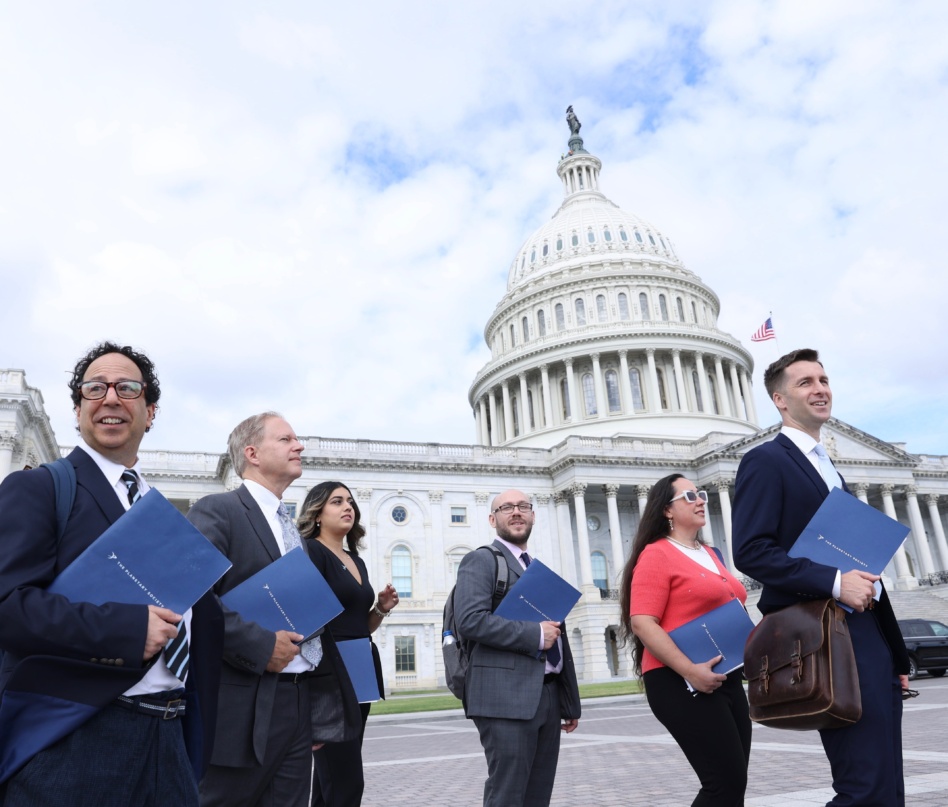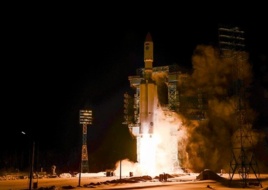Joseph Diggs, a science teacher in Anne Arundel county, MD, was doing a different kind of educating (and in a much grander classroom) on Monday.
Diggs was one of 130+ people who traveled to DC for the Planetary Society’s Day of Action, during which people lobby their representatives to support scientific exploration of the cosmos. Though the Planetary Society provides training and talking points, participants take PTO and pay their own way because of a deep-rooted belief in the importance of planetary science.
“Whenever we talk about space, my students light up, even the quiet ones,” Diggs told me when I spent the morning embedded with Planetary Society members making office calls on Capitol Hill. “I’m here on behalf of them.”
Day of Action 101: This year’s 130+ participants from 31 states is the largest day of action for the society, said Jack Kiraly, director of government relations for the Planetary Society. It’s also the first time the group was able to host the lobbying blitz in person since February 2020.
Kiraly acknowledged that fiscal 2024 is a critical year for NASA’s planetary science goals, since budget caps imposed as part of the debt limit deal reached earlier this year have put many programs potentially on the chopping block, such as:
- Mars Sample Return, which would allow samples of the Red Planet to be studied on Earth
- The Dragonfly mission to search for signs of life on Saturn’s moon, Titan
- The VERITAS and DAVINCI missions, which would both study Venus
“We’re making sure that space science is part of the conversation about the FY24 budget,” Kiraly said. “It doesn’t look great in the Senate report language for NASA’s science missions, so we want to make sure those things are being championed on the Hill.”
Fly on the wall: Mars Sample Return, which was slashed in the Senate’s proposed NASA budget, was top of mind for both Planetary Society members and staffers. In a meeting with the office of Sen. Ben Cardin (D-MD), one of the first comments from a staffer was about the projected cost of the mission skyrocketing to be dramatically over budget.
But the citizen lobbyists had many retorts for that. Apollo was over budget too, one argued, and look what that accomplished. It’s money well spent for the expected long-term scientific return. And the funding couldn’t be pushed to a future year, or else existing missions on Mars that make up the first step of the multi-step process mission would expire.
“It’s an investment in the future,” one Planetary Society member quipped.
A difference maker: Rich Myers, who works on the JWST program with Northrop Grumman in DC, said he’s been a Planetary Society member for a decade and keeps coming back because he sees programs he’s pitched to lawmakers actually be included in budgets.
“I think it actually makes a difference,” he said. “That’s really how you get things done, right? You have to come out here and you have to give your opinion on what’s important to you, and hopefully that gets enacted in law.”





